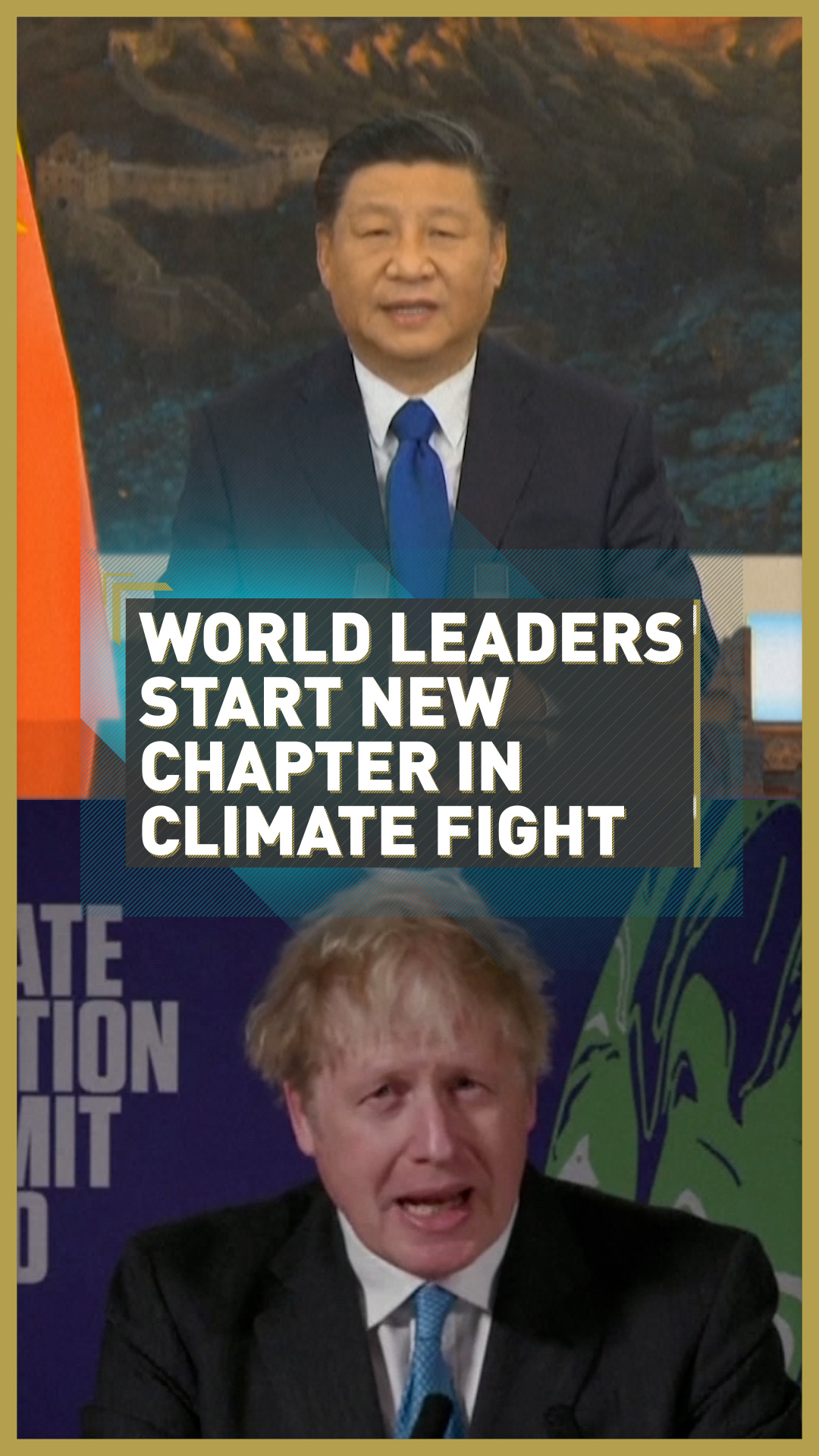02:14

Five years ago, world leaders made history by signing the Paris climate accords, thus pledging to slash their emissions through the 21st century.
This year was supposed to be a key milestone: the legally binding deadline for signatories to outline how they actually planned to make that happen.
Then the coronavirus pandemic struck. This meant the next COP Climate Conference, under the presidency of the UK, had to be put back by a year until November 2021, leading to much discussion about what that meant for the deadline.
One part of the Paris text mentions 2020 specifically; another says nationally determined contributions should be submitted nine to 12 months before the next meeting. That would now be February 2021.
Nonetheless, the UK decided to host a virtual Climate Ambition Summit anyway to allow countries who had already come up with detailed plans a platform to highlight them.

British Prime Minister Boris Johnson sought to lead the way by announcing his government would cease funding for overseas fossil fuel projects, though critics of the policy point to a loophole that will allow "limited exemptions."
That is an early step towards meeting the UK government's recently stated target of reducing its carbon emissions by 68 percent on 1990 levels by 2030. By Johnson's own admission during his opening remarks, all countries will have to do much more.
Many of the other Paris signatories had their own chance to burnish their green credentials here. After late-night talks this week, the European Union upped its own 2030 commitments, pledging to cut carbon emissions by 55 percent on 1990 levels. China promised a cut of 65 percent with the year 2005 as its benchmark, as well as increasing its wind and solar capacity to over 1.2 billion kilowatts.

UN Secretary General Antonio Guterres has said more countries should announce a "climate emergency" to highlight the extent of the crisis. /Eduardo Munoz/Reuters
UN Secretary General Antonio Guterres has said more countries should announce a "climate emergency" to highlight the extent of the crisis. /Eduardo Munoz/Reuters
UN Secretary General Antonio Guterres called on more countries to declare a "climate emergency" in recognition of the severity of this existential crisis and the scale of the challenge that lies ahead.
Guterres oversaw perhaps the most fractious UN Climate Summit on record in December last year in Madrid. Fair financing of the monumental shift away from the carbon economy had essentially proven the unbridgeable gap back then. One year on, Guterres noted that the trillions of dollars being spent on ensuring a robust economy from the coronavirus pandemic presented a unique opportunity.
"We are borrowing from future generations," Guterres told the summit. "And this is a moral test: we cannot use these resources to lock in policies that pile mountains of debt on a broken planet."
One potential game-changer between now and next year's meeting could be the return of the United States to center stage. President-elect Joe Biden has pledged to re-join the Paris accords that Donald Trump pulled Washington out of.
Perhaps that might pile the pressure on a handful of major economies – including Australia, Brazil and South Africa – who were intentionally not invited to the virtual meeting having not yet tabled a roadmap to honour their Paris commitments.
But more delays mean larger cuts will be needed over a shorter period of time, which will make keeping the spirit of Paris alive – and indeed the planet as we know it – ever more difficult.

